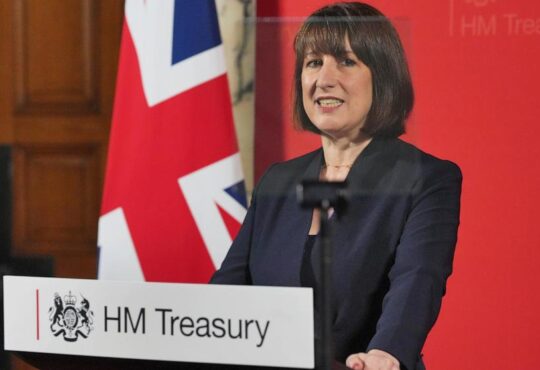Alabama mid-pack among states’ friendliness to sound money, precious metal defense, organization says

For thousands of years, money was based on precious metals like gold and silver, but in the 20th century, the United States moved away from metal-based currency and toward fiat currency backed only by full faith and trust in the federal government.
Many economists believe this has contributed to inflation and volatile boom-bust cycles.
But the federal government is not the only level of government capable of creating obstacles to sound money through its policies.
The Sound Money Defense League (SMDL) released its annual Sound Money Index report for 2023 earlier this year. The report measures states’ friendliness to precious metals, considering policies that define what is and isn’t legal tender, tax gold and silver holdings and sales and facilitate the storage of gold and silver in the state.
According to the SMDL, Alabama’s policies about gold and silver are mediocre at best. Out of all 50 states, Alabama ranked 28.
The best states for precious metals were Wyoming, South Dakota, Alaska, New Hampshire and Texas. Other Southern states, such as Florida and Tennessee, were in the top 10.
The worst states include California, Minnesota, Maine, New Jersey and Vermont.
But what made Alabama so middle-of-the-road?
Though states are authorized by Article I, Section 10 of the U.S. Constitution to make gold and silver coins “a tender in payment of debts,” Alabama does not treat gold and silver coins this way.
In other words, Alabama fails to recognize gold and silver coinage as money like it does the U.S. dollar.
But other states are different. Utah and Oklahoma have laws recognizing gold and silver as legal tender.
These laws include provisions to authorize gold clause contracts, which means that if parties in a contract agree to be paid in gold and silver, state courts can’t substitute something else, such as Federal Reserve Notes, as payment.
Despite not recognizing gold and silver as legal tender, Alabama removed sales taxes and other restrictions on purchasing precious metals in 2019.
In the 2022 legislative session, Alabama Gov. Kay Ivey signed a new bill to further remove restrictions by broadening tax exemptions for bars and coins at least 80% of the precious metal being purchased. It also removed a requirement requiring those purchasing precious metals to file a report with the Alabama Department of Revenue to gain tax exemptions.
Nevertheless, Alabama still maintains capital gains taxes on bullion when exchanged for Federal Reserve notes or used in barter transactions.
Even if your precious metals do not necessarily increase in value, as the dollar loses value due to inflation, your precious metals may appear to increase in value when priced in dollars.
According to the SMDL, this could be seen as a “gain,” considered taxable income in Alabama.
In 2018, Texas opened a 23,000-square-foot gold depository to store gold bullion for citizens. The depository was authorized by law in 2015.
In May, a bill made it out of a Texas House of Representatives Committee to create digital currencies backed by gold and silver stored in the depository. Texans could’ve purchased the currency with cash, gold or silver if it had passed.
But the bill did not pass. Though it amassed 44 sponsors from both major parties, it did not receive a vote on the house floor before the Texas legislative session ended.
Some have suggested that digital currencies backed by precious metals could be a viable alternative to the threat of central bank digital currencies (CBDC), which would place a tremendous amount of power in the hands of political elites.
The popularity of digital currencies like Bitcoin has skyrocketed over the past decade. CBDCs, like cryptocurrencies, are digital, but the main difference is that CBDCs fall under the federal government’s control.
CBDCs may even enable federal agencies to punish political dissent by “freezing” transactions for particular groups or individuals.
President Joe Biden signed an executive order in 2022 urging the research and development of a U.S. CBDC. China has been developing a digital Yuan since 2014 to be issued by the People’s Bank of China. The Chinese government experimented with the CBDC in May, first issuing it through public sector paychecks in the eastern Chinese city of Changshu.
Texas remains the only state with its own bullion depository in the country, but some states are exploring similar opportunities.
Earlier this month, lawmakers in the North Carolina House of Representatives voted to study the benefits of establishing a bullion depository in the state.
Other states, including Missouri, Mississippi and Oklahoma, are also considering establishing depositories.
Nevertheless, Alabama lawmakers have not discussed establishing such an institution.
According to SMDL, no state in the union holds any of its reserves in gold and silver.
However, one public pension fund in the country holds precious metals: The Ohio Police & Fire Pension Fund allocated 5% of its $16 billion portfolio to gold and silver.
Though the Retirement Systems of Alabama (RSA), which manages all of Alabama’s public pension funds, owns several golf courses, the largest office building in New York City and may soon own the new meeting place of the Alabama Legislature, it does not appear to own a single ounce of gold.
The SMDL argued in its report that pension managers shying away from gold only puts pension holders at risk due to the practices of the Federal Reserve and the certainty of inflation.
To connect with the author of this story or to comment, email will.blakely@1819news.com or find him on Twitter and Facebook.
Don’t miss out! Subscribe to our newsletter and get our top stories every weekday morning.






